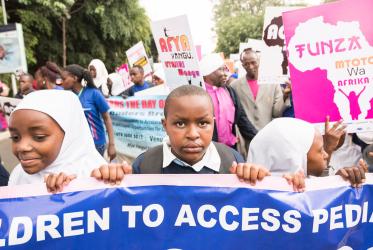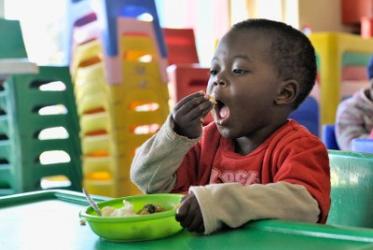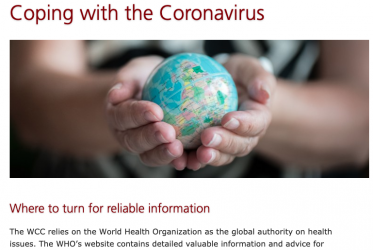Displaying 81 - 100 of 147
24 August 2017
“Do you know where to search for your lost child?”
18 July 2017
G7 must address famine
22 May 2017
Applications open for WCC Eco-School
10 May 2017
UN discussion focuses on women, HIV and property rights
21 March 2017
“It’s time to be brave, to form diverse partnerships”
02 March 2017












